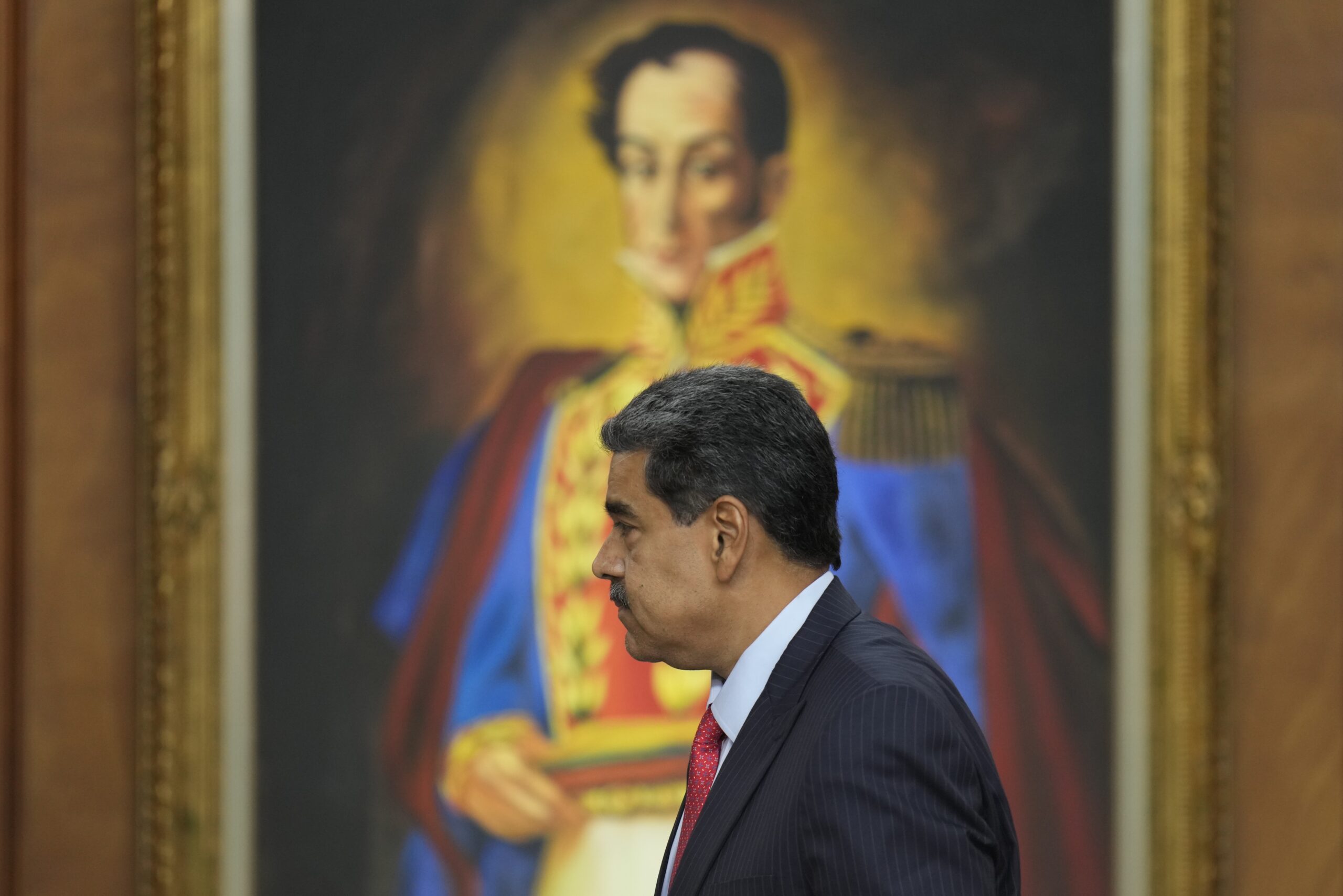Washington – Member countries of the Organization of American States (OAS) failed to reach consensus on Wednesday to approve a resolution calling on Venezuelan authorities to “immediately” publish the minutes of last Sunday’s elections.
The absence of Mexico and several Caribbean countries from the session, coupled with the abstention of 11 countries, including Brazil, Colombia and Bolivia, led to the failure to obtain the necessary votes to approve the document in an extraordinary session of the Permanent Council.
Prior to the vote, behind closed doors, representatives of the OAS member countries spent more than 5 hours negotiating the text of the document.
The key to the outcome of the vote lies there, in the disagreements that arose in these talks.
According to some ambassadors during the session, tensions were generated by a phrase in the resolution that called for a “comprehensive verification” of the results “in the presence of independent observation organizations to guarantee the transparency, credibility and legitimacy of the results.”
In turn, the language of this article claimed that the request to verify the results had already been made by “the relevant Venezuelan political actors.”
Countries that abstained from voting asked for this article to be withdrawn in order to give their support to the resolution, a diplomatic source told EFE.
According to the source, Panama and Peru opposed this request, “blocking negotiations” and asking for a vote on the resolution, which was initially sought to be approved unanimously.
Prior to the Council meeting, Panamanian President José Rául Mulino said that his country would not endorse a resolution that was not “fully useful” to reach a “real solution” to the situation in Venezuela.
Diplomatic calculation
Colombia’s abstention sparked a wave of internal criticism from former Colombian presidents and politicians, who accused Gustavo Petro’s government of being “complicit” in electoral “fraud” in Venezuela.
Colombia’s ambassador to the OAS, Luis Ernesto Vargas, said during the session that the decision to abstain from voting was discussed with the Colombian Foreign Ministry and was due to doubts about the OAS itself.
Vargas said that after the statements made on Tuesday by Secretary General Luis Almagro, where he asked Maduro to accept a “defeat” in the elections, “it is difficult to present the OAS” as an “impartial” organization.
He also referred to the fact that Venezuela has no representation in the OAS, after the country submitted its request to leave the organization in 2017.
The Colombian government, which has played a key role as mediator in the Venezuelan political crisis, has publicly urged Venezuela to allow a “transparent” scrutiny of the elections, including “vote counting, minutes” and international monitoring.
According to a Colombian Foreign Ministry source who told EFE, Gustavo Petro’s government is in talks with Mexico and Brazil “to create the necessary conditions and seek an agreement for coexistence and political peace.”
US changes tone and recognizes González’s “irrefutable” victory
Also during the OAS session, the U.S. State Department official for Latin America, Brian Nichols, said that there is “irrefutable” evidence to declare the victory of the opposition candidate, Edmundo González Urrutia, in the presidential elections in Venezuela on July 28.
The diplomat urged Maduro and other countries in the “world” to recognize Gonzalez’s victory, supporting the validity of the voting records published by the opposition on a website.
The information published by the anti-Chavez movement contradicts the version of the Venezuelan National Electoral Council (CNE), which declared victory to Maduro in the early hours of Monday with 51% of the votes.
The CNE, however, has not shown the total vote counts, something that has been demanded by both the opposition and the citizens in mass protests and by part of the international community.
Voting in favor of today’s resolution were Argentina, Canada, Chile, Costa Rica, Ecuador, El Salvador, the United States, Guatemala, Guyana, Haiti, Jamaica, Panama, Paraguay, Peru, the Dominican Republic, Suriname and Uruguay.
Antigua and Barbuda, the Bahamas, Barbados, Belize, Bolivia, Brazil, Colombia, Grenada, Honduras, Saint Kitts and Nevis, and Saint Lucia abstained.
Dominica, Mexico, Saint Vincent and the Grenadines, and Trinidad and Tobago did not participate in the session, as did Venezuela, which has been absent from the organization for some time.
Keep reading:
OAS will ask the International Criminal Court to arrest Nicolás Maduro
Venezuelans in New York form coalition to urge US to act on allegations of electoral fraud
Nicolás Maduro calls Edmundo González “cowardly sir” and challenges him to go to Miraflores
